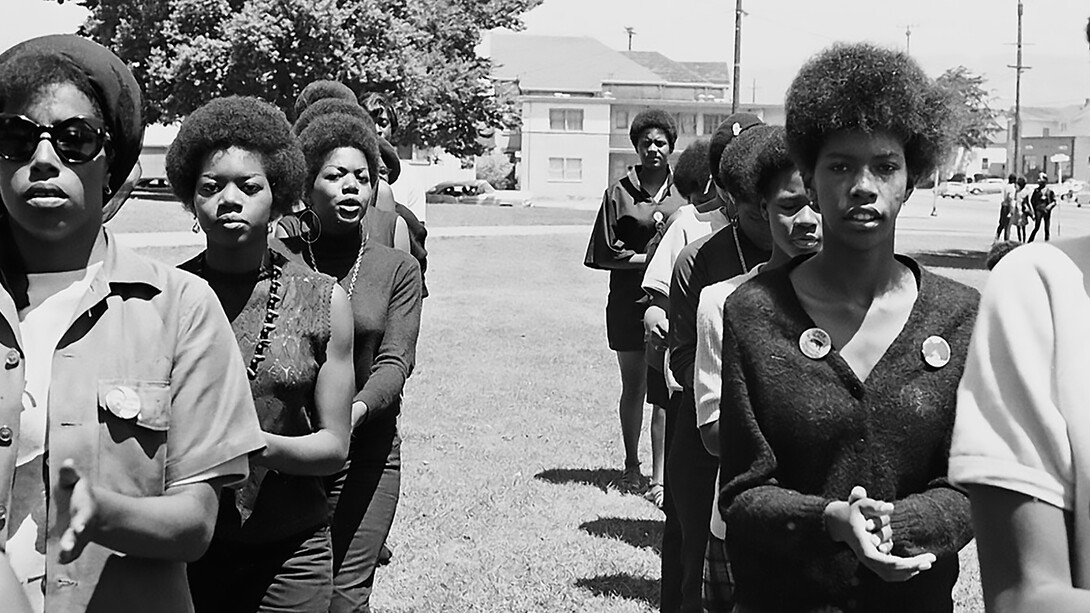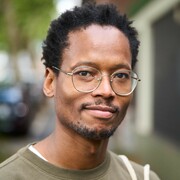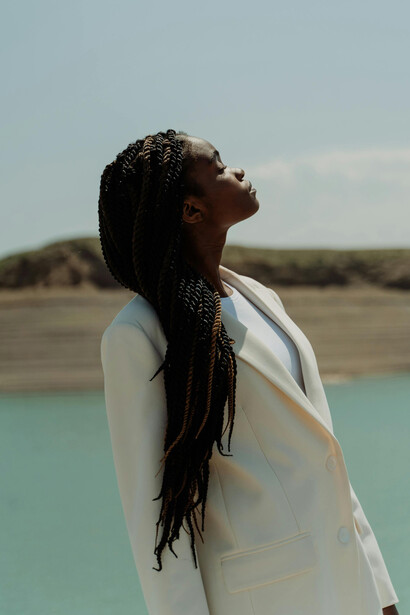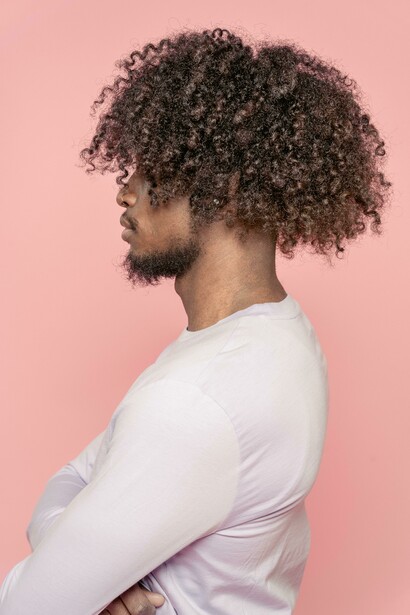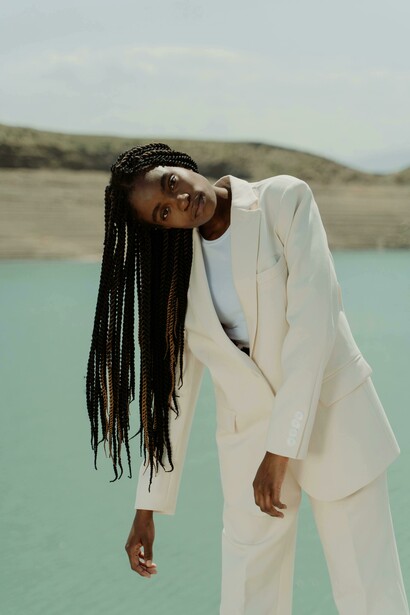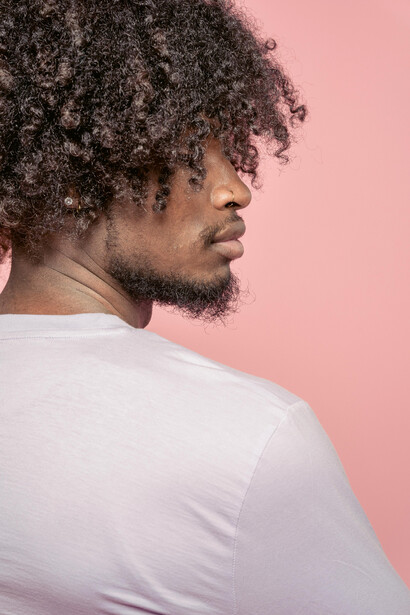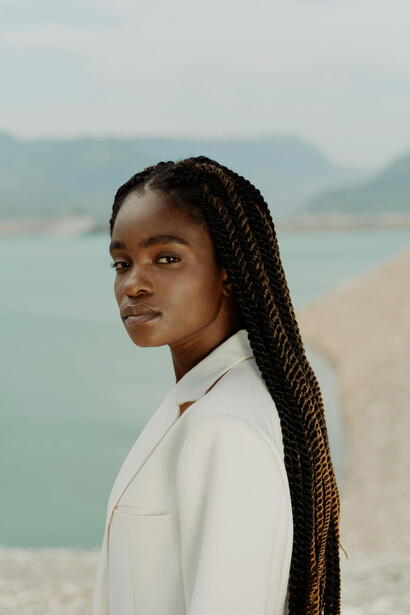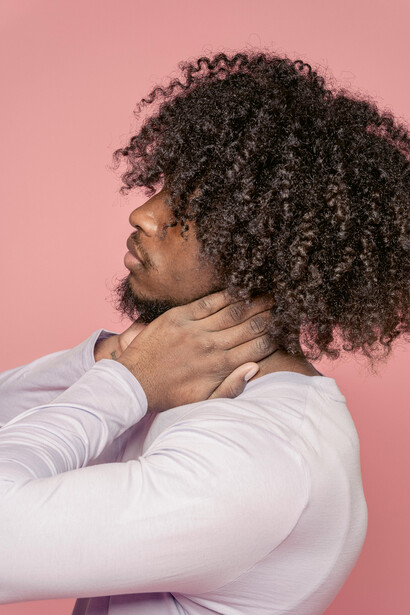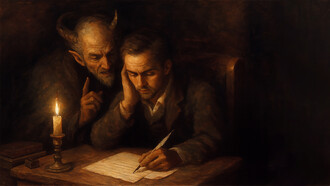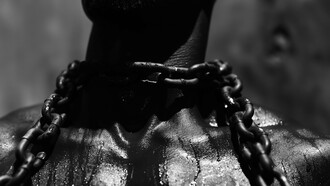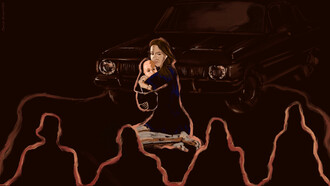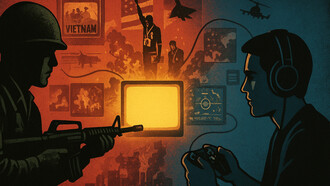My hair is rich, coarse, unruly, and alive with its own will. It is an extension of my identity, a lineage of my Blackness. Samsonic. But from the time I was a child, others seem to have had a problem with it.
At seven, a classmate couldn't understand why my hair was always "untidy." Back then, at the first sign of dandruff, my mother would shear my hair clean off, insisting I had a "handsome face" that suited a bald head. Lies. It was easier that way. Less trouble. Less attention. It totally killed me. Every time.
As an adult, the scrutiny and mockery have never stopped.
I’ve been called all sorts of names, and there’s an association with a certain societal standard and lack of respect I get from Black men about my "unruly" hair. And this has deep roots. Black people of all generations have always been policed about their appearances according to a white gaze. We get profiled if we wear hoodies; an Afro is a sign of political dissidence. Think of the Black Panthers with their immaculate Afros, Malcolm X, and Nelson Mandela and how their cultivated side paths were associated with intellectualism and passivity as opposed to Steve Biko’s radical, unruly hair, which I’m sure instilled deep fear in the mind of the oppressor.
"Kaffir," "hare," and "dirty nappy hair" were always words that you heard on the regular, and we knew that it was a battle none of us would win. If you complained to your parents, you would lose your hair completely. So, you zipped it shut, conformed, and waited for better days to come.
The break came soon after we left school, and we liberated our locks. We grew our fros, dreadlocked, braided, stretched, ironed, dyed, and Mohawked the hell out of our hair. And yes, it was a personal and a political statement of where we come from and the years we have had to endure in the quest to cultivate our identity.
We knew it was never to last, and soon we faced the reality of what and how the world sees us. Looks have to change depending on your profession. A huge Afro was a no-go when I started in the corporate industry, and dreadlocks were deemed far too radical to be accepted. I was told that a clean cut and an open face were what would ensure my rise and entry into higher corporate cafeterias. Little wonder I never lasted.
What disappoints is our own family’s complicity, which oftentimes enforces these views and stereotypes. My parents and siblings have never understood why I’ve kept my hair this way. To them, it's a childish phase I refuse to outgrow. They believe it makes me look unserious and more concerned with identity than with real life. It is as though I have diminished their social capital.
But what is real life if not the freedom to exist as you are? Black masculinity is rigidly defined as bald, rotund, and "clean." Anything else that is long, twisty, and curly is seen as queer, feminine, artistic, or worse, weak and unserious. Perhaps because in some minds, maturity for a Black man means shedding individuality and cutting off the parts of yourself that don’t fit the mold.
It's a tall order to challenge the perception that your hair makes you "too Black," "too radical," or "too difficult" for a world that already sees Blackness as a problem to be managed. Look around you. How many Black men look the same? How many in positions of power have hair? How many are "allowed" to?
What about autonomy, the right to exist in my skin as I choose, without explanations and apologies?When people make comments about my hair, what they're really saying is, "I don’t really understand you," "You make me uncomfortable in ways I can’t explain." My hair forces them to confront their own biases about how a Black man should look, should behave, and should be. So yes, my hair is political. Not because I want it to be, but because the world makes it so.
But the truth is, my hair was never the problem. The problem is a world and a people still trapped in the lie that assimilation is safety. That conformity is maturity. That sexual attraction must be a certain type. That Blackness must be curated to be palatable.
My hair lives between two worlds, that of danger and desire, and I’ve been alive long enough to admit it. My hair makes me both hyper-visible and invisible in the dating economy. Black women who’ve internalized respectability politics see my hair as "unserious," too artistic, too unpredictable, and too unemployed. I’ve been asked, "Do you only date white women?" as if my hair automatically exiles me from Black love. But if I dig deeper, I realize it’s not just about my hair. It’s about the subconscious association of Black male "wildness" with irresponsibility. A bald head or a short cut signals control; my Afro signals chaos.
Meanwhile, others perhaps secretly fetishized my hair as exotic, textured, and cool. This is the paradox: my hair is desired when it’s decorative and ornamental but rejected when it’s authentic. Think about it, why is the "clean-cut" Black man the global standard of attractiveness?
Because perhaps his lack of hair mirrors his lack of threat. Brush cuts, perfect fades, and bald heads are safe. They say, “I’ve disciplined my Blackness.” Large curls? They are loud and refuse to be domesticated.
Humor me, Steve Biko’s Afro wasn’t just radical because it defied apartheid standards; it was radical because it was unapologetically Black in every way. That’s why it terrified others because it proved Blackness could be free, could be loved, and could flourish on its own terms.
My curls are freedom. And MY freedom will always be seen as a rebellion.My curls are many things to me. It is how I look at my personal growth and progress. They are the signal to my health and transformations. My hair is my natural totem, a personal statement, and the ultimate treat, nourishment, and self-care. It is how I know myself, how I love and accept who I am, and that which remains constant. I do not make a statement to the world; I make it to myself, in my own way and on my own terms.
Next time you see me, think before you mention my hair; better yet, I wish you to shut up about your opinion. For only I know its transformations, its seasons of rooting, shedding, coloring, and growth.
More than anything, it is that well-rooted and solid oak tree, a sign of how far I’ve come and how long I still have to grow.
